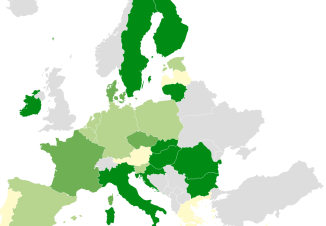
The purpose of the Stop the Clock Directive is to make the implementation of EU regulatory obligations regarding environmental and social sustainability more gradual and realistic, taking into account the operational needs and timeframes of companies for implementation. Member States must transpose the Directive by 31 December 2025. We look at how it changes the application of the CSRD and CS3D.
The CSRD introduces an obligation for companies to prepare a sustainability report according to common standards defined at the European level (the so called ESRSs). All information must be provided, including financial information, relating to the impacts of company operations on sustainability issues as well as the ways in which these issues influence company development and performance (known as the principle of ‘double materiality’ or ‘double relevance’). Such information must also concern personnel (e.g. on working conditions, equal treatment and other rights related to work). This applies not only to the company’s own workforce, but also that of its respective commercial partners in the so-called ‘value chain’.
Under the new Stop the Clock Directive, the measures imposed by the CSRD will be extended for certain in-scope organisations. The measures will now apply from the financial year beginning on:
The financial year starting 1 January 2028 (or a later date) remains unchanged for third country companies.
The application of the reporting obligations for public interest entities (e.g. listed companies, banks, insurance and reinsurance companies) with more than 500 employees has already occurred (1 January 2024). These have not been extended.
The CS3D aims to strengthen companies’ sustainability due diligence by requiring them to ensure compliance with environmental and human rights obligations (including workers’ rights) throughout the value chain.
Under the Stop the Clock Directive, EU member states will now have to implement the CS3D by 26 July 2027 rather than 26 July 2026, providing that the main obligations will apply starting from:
The adoption of the Stop the Clock Directive is an important development and forms part of the EU’s response to criticism that EU red tape hinders competitiveness with foreign rivals. Clearly organisations that are in-scope of both the CSRD and CS3D should check whether they will be impacted by the new directive and, if so, prepare accordingly.
It is also important to note that the Stop the Clock Directive only relates to timing – other proposals put forward by the EU to reduce sustainability reporting, including potential adjustments to the ESRS mentioned above, are yet to be adopted. We will keep a watching brief on any further changes.
Discover our Global HR Law Guide



